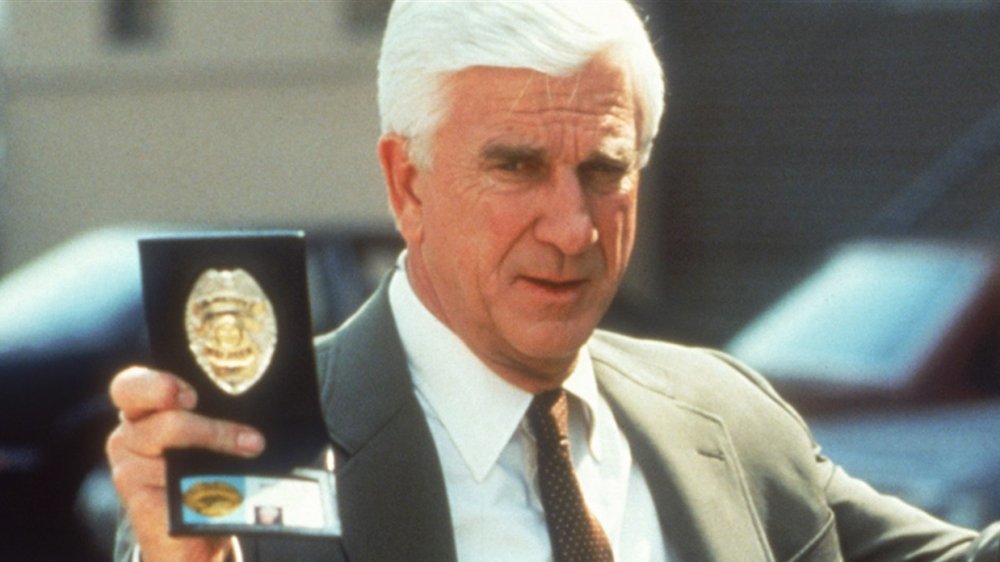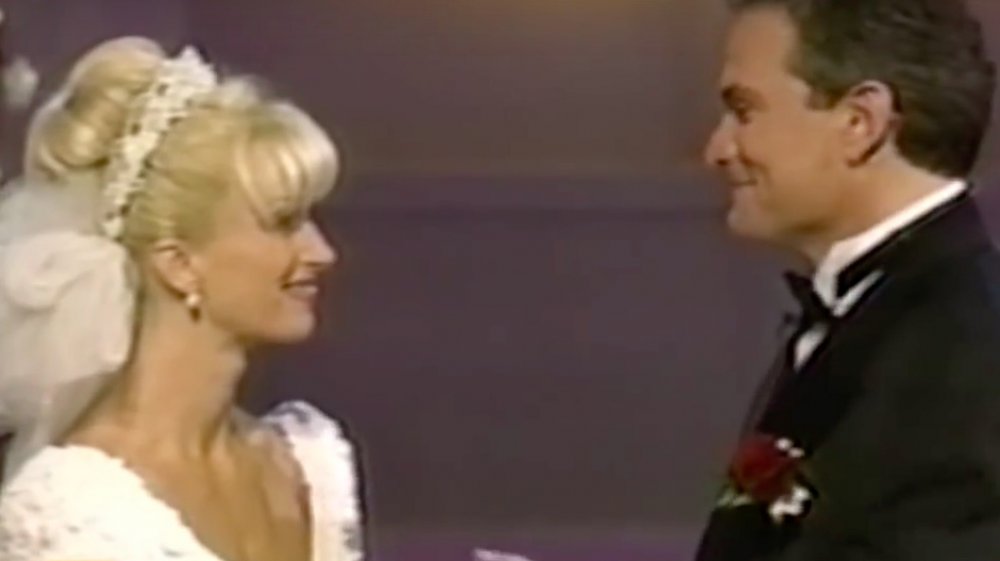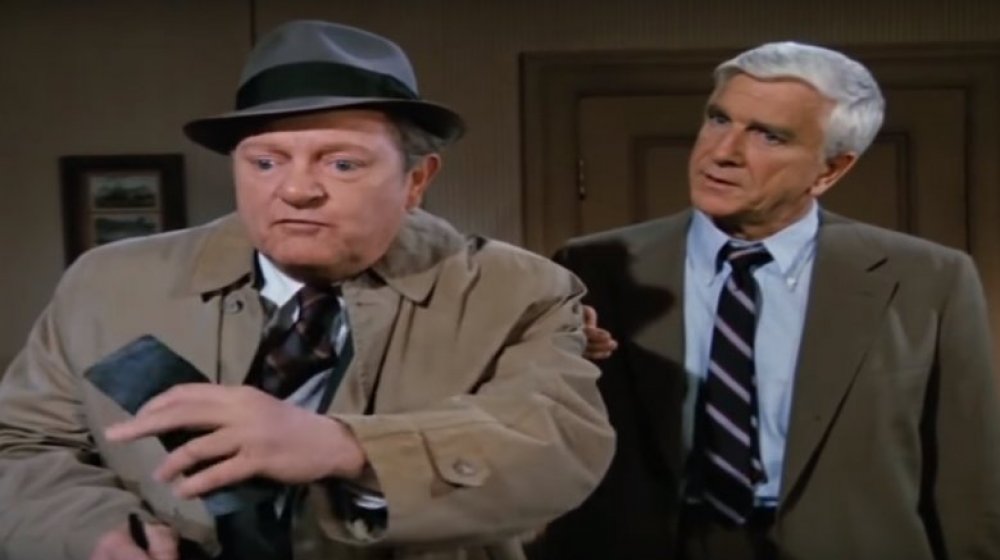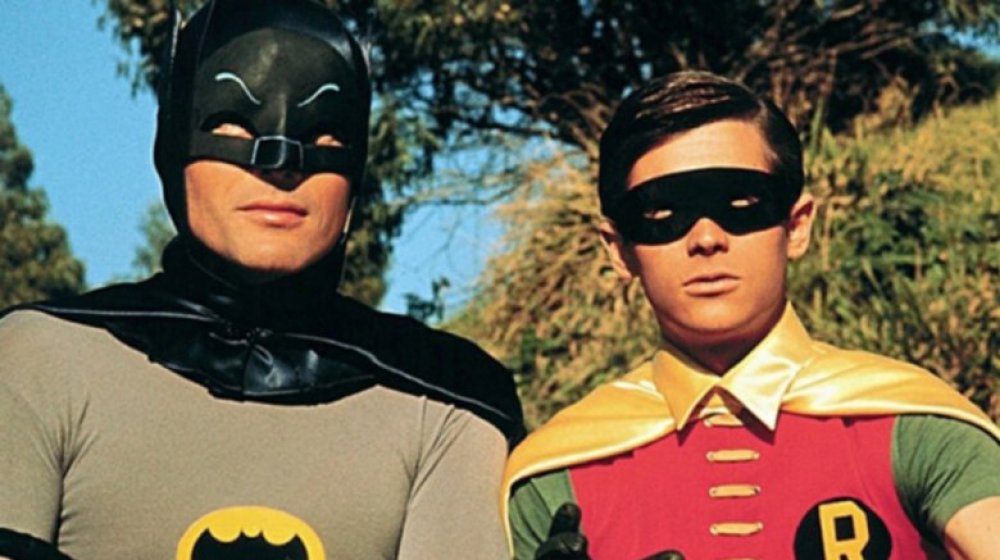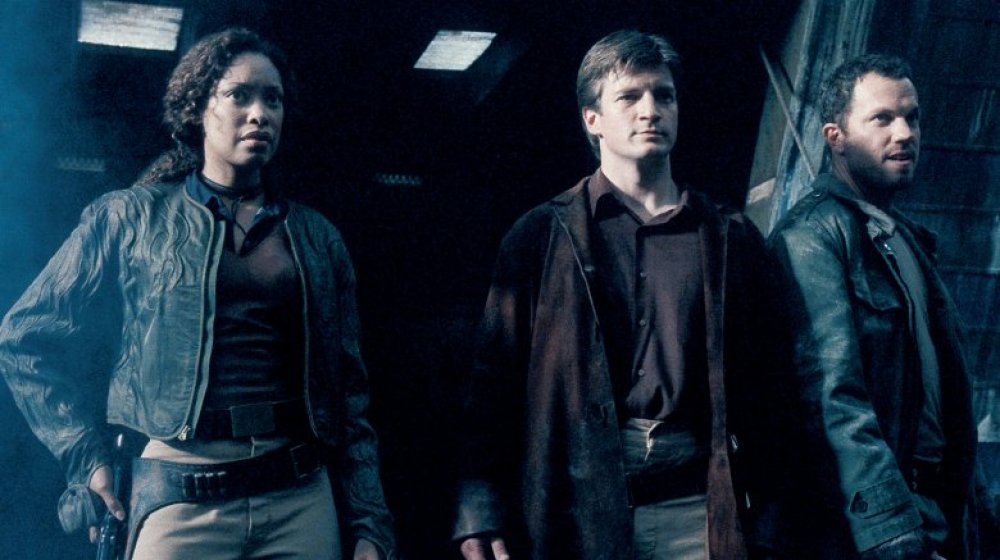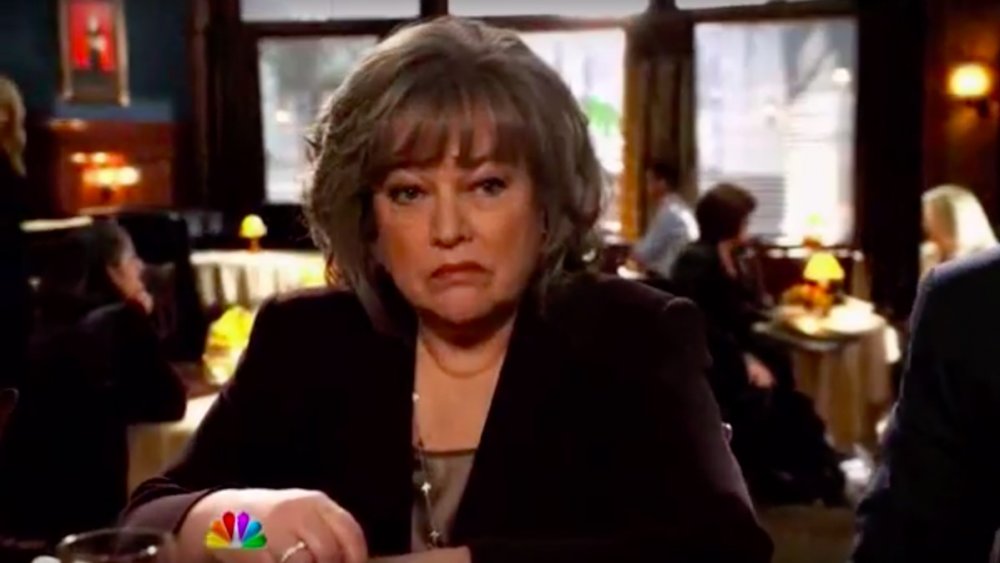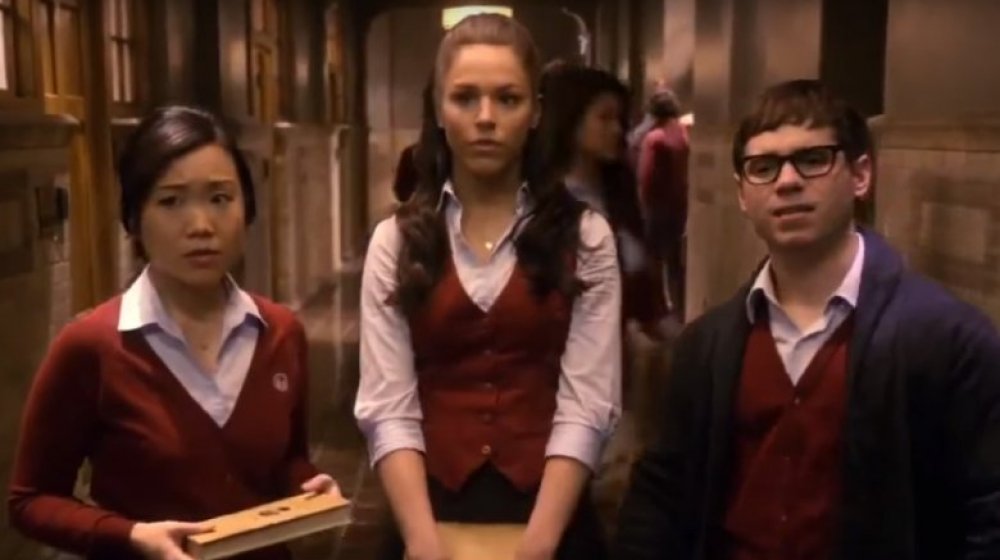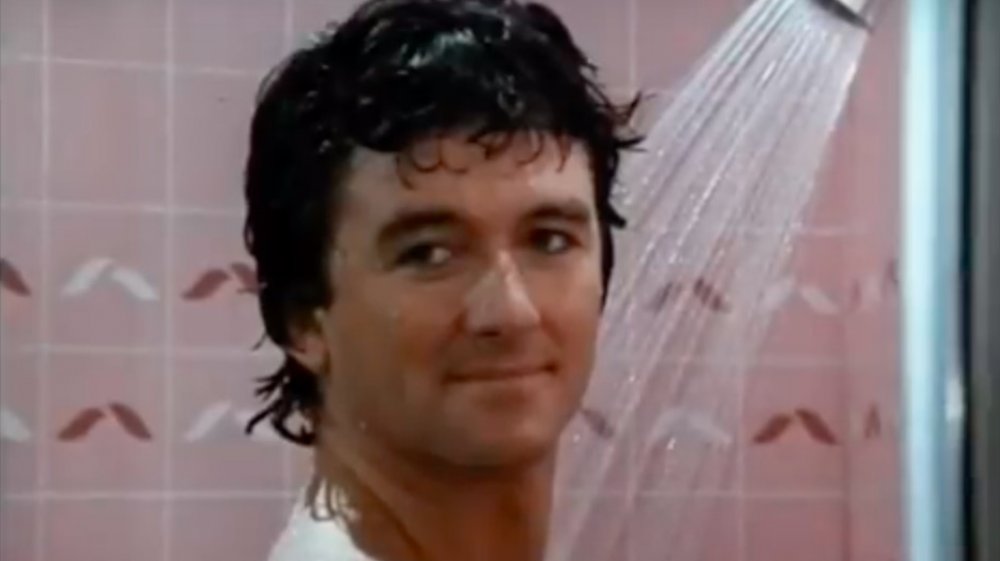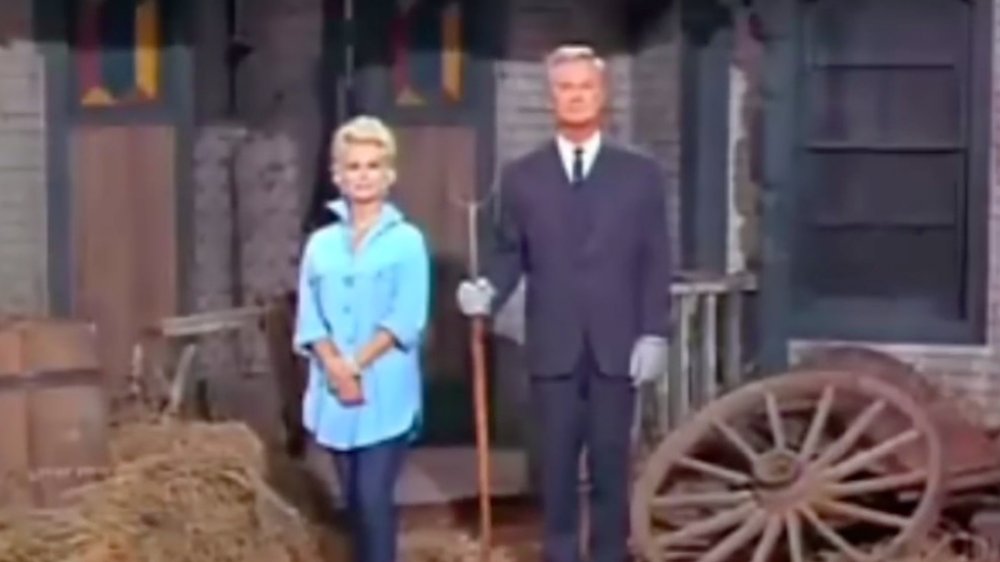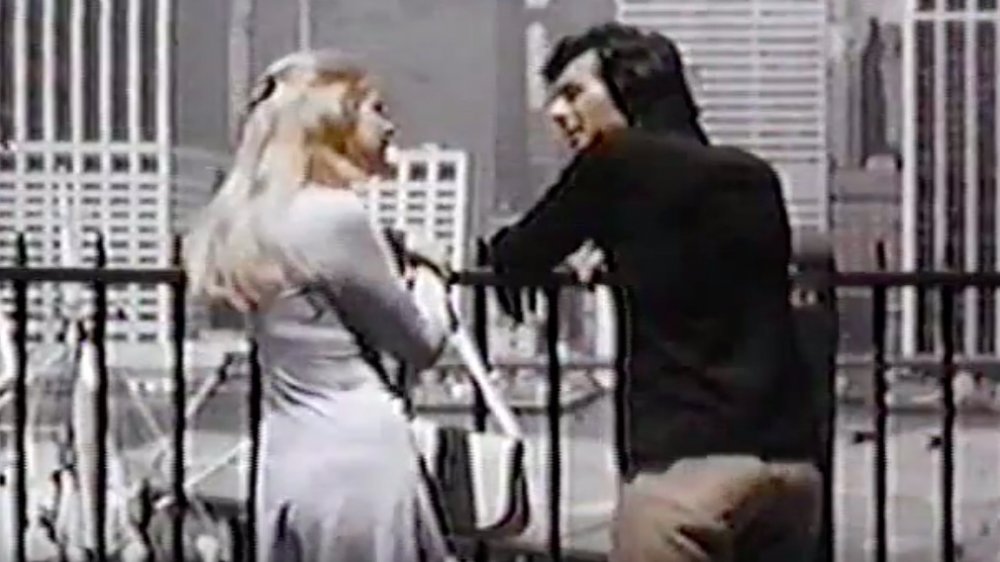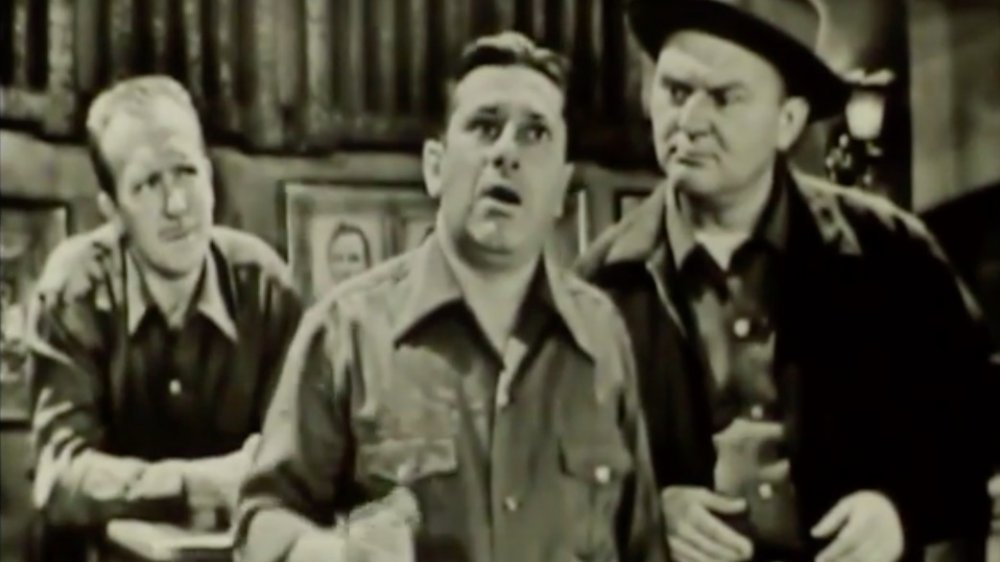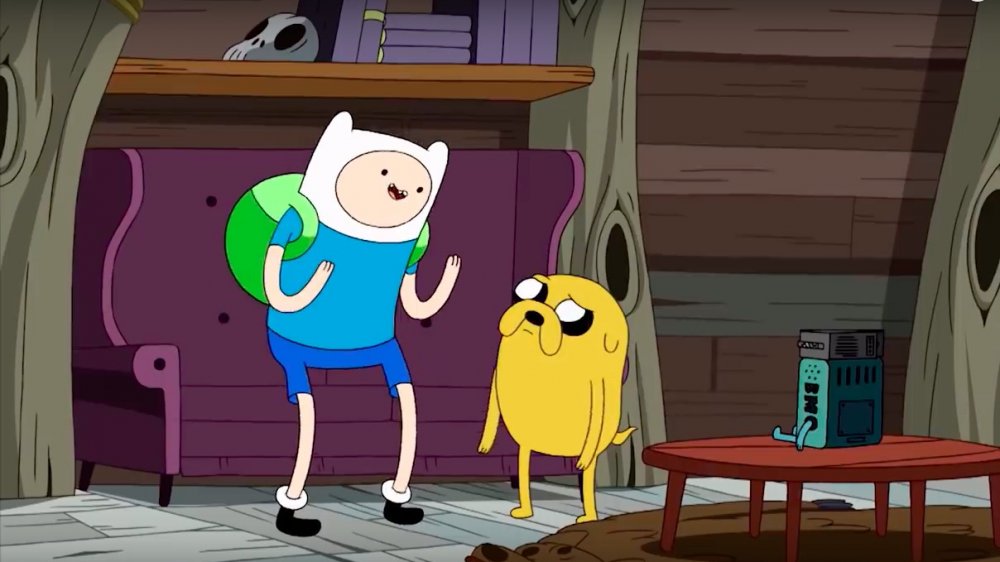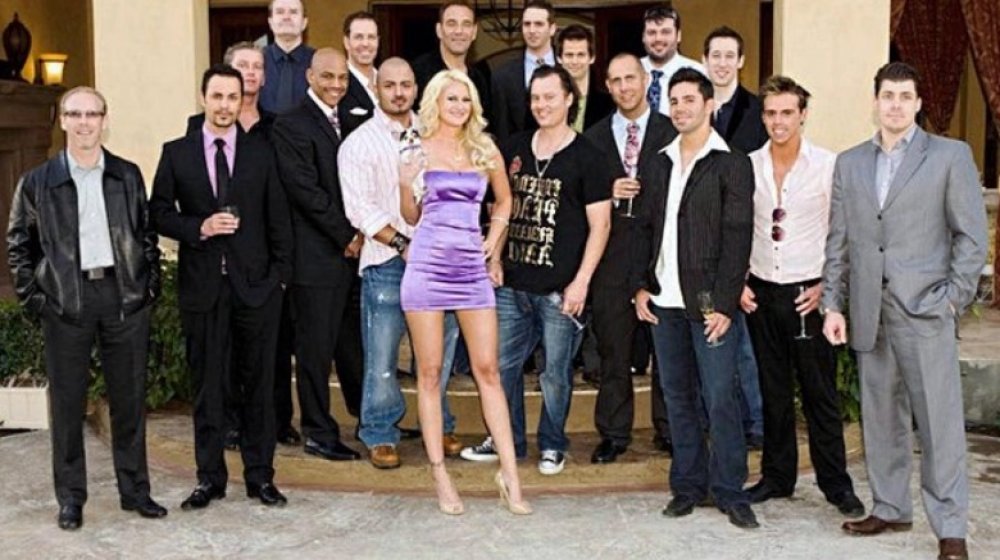Bizarre Reasons These TV Shows Were Canceled
When your favorite show gets the ax, the reason is usually pretty sterile — maybe the audience just wasn't that big or the show was too expensive to produce. Some shows, though, clearly deserved to be canceled. Some shows, in fact, are so awful that they deserve to be ritualistically canceled with fire or a toilet or some combination thereof. And some shows clearly should have been canceled years ago to save us all from the despair of the world's most painfully disappointing ending ever (cough cough Game of Thrones cough cough).
But sometimes a show gets canceled and the audience is just left scratching their heads. Over the years, some really brilliant television programming (and some so-so programming that was still popular for whatever reason) has been cancelled for reasons that can only be described as bizarre. Here are a few examples of shows that failed to see the light of the next season not because of ratings or money but because of, you know, reasons.
Who wants to marry some creepy dude who lied about his money?
In early 2000, Fox was enjoying the success of some pretty over-the-top reality shows like The World's Most Shocking Moments Caught on Tape, When Animals Attack, and the hugely popular special Who Wants to Marry a Multi-Millionaire? Then in February it announced it was killing its plans to produce a follow-up to its multi-millionaire special because of some bad press about star Rick Rockwell, namely allegations that he was a) a jerk, b) a liar, and c) probably not actually a multi-millionaire.
According to the New York TimesAmong Rockwell's transgressions was an accusation by a past girlfriend of physical abuse, which led to a restraining order. The self-proclaimed real estate developer and motivation speaker also seemed to have lied about his past speaking engagements — several venues he claimed to have a history with revealed that he'd never actually performed for them. And perhaps most damning of all, People reports he wasn't really living the gold-plated lifestyle most of us associate with multi-millionaires. His 1,200-square-foot ranch home in Encinitas, California, was modest, and the backyard was decorated with an old toilet. The lucky bride, in case you're curious, had the marriage annulled just seven weeks after vowing to love, honor, and roll around in the piles of money he probably didn't really have.
Imagine, a show you had to watch in order to appreciate
Before the iconic 1988 movie Naked Gun, there was its less-iconic but still brilliant television ancestor, Police Squad! Like Naked Gun and its two follow-up films, the show was a parody of 1960s police dramas starring the late Leslie Nielsen as the hilariously deadpan detective Frank Drebin. The humor was fast-paced and often visual, which is a pretty great formula for a darkened movie theater but didn't work so well for the more distractible television audiences of the early '80s. Vulture records that network executive Tony Thomopoulos famously said the show was canceled because "you had to watch it to appreciate it." What he meant, of course, was that the jokes moved so quickly that a casual viewer might miss something, but that didn't stop critics from relentlessly ridiculing him — TV Guide even went so far as to call his statement "the most stupid reason a network ever gave for ending a series."
Holy bulldozers, Batman!
Before Star Wars claimed the title of the greatest merchandising vehicle of all time, there was Batman, the unconventionally popular television series starring Adam West as the caped-but-campy crusader. The 1966 series appealed to a huge audience — Batman toys were on just about every kid's wish list, and adults loved the show for its silly humor. It was so popular that it had two weekly episodes (one each airing on Wednesdays and Thursdays) and according to CNN, both hit the top 10 most-watched list for the 1965-66 television season.
Batman and Robin spent more than two years fighting crime on television, but they couldn't save themselves from the most diabolical villain of all: the network. ABC decided to kill the show halfway through the third season, citing high production costs and falling ratings. The story doesn't end with those mundane and typical show-ending motives, though. Producers hoped that another network would pick up the series. NBC was willing, but nobody told the guys with the bulldozers to wait a few weeks before destroying the set. NBC balked at the idea of replacing hundreds of thousands of dollars worth of Batcave, and POW! – that was the end of the dynamic duo (for a while).
Not much luck for the horses, though
HBO has brought us mobsters, undertakers, robot cowboys, and dragons, but in 2012 it also offered a short-lived horse racing drama starring Dustin Hoffman and Nick Nolte. The first thing to remember about this series is that it used real horses because apparently horses are harder to CGI than dragons? It's not too surprising that the show opted for realism, but the problem with realism in horse racing is that it often leads to death. Horses are beautiful animals, but they're prone to doing stupid things that put them in great mortal peril, like running in terror from such enemies as llamas, cameramen, and wind-blown plastic grocery bags.
Luck, as it turned out, was not very lucky for its equine stars — according to CNN, two horses died while filming Season 1, and a third was euthanized while filming Season 2 after she "reared, flipped over backward, and struck her head on the ground."
Ratings were already declining when producers decided to pull the plug, but loud pressure from organizations like PETA probably also had something to do with it. HBO issued a statement shortly after the third and final equine death, promising that its safety standards were higher than "any protocols existing in horse racing anywhere" but that it was canceling the show anyway because it could not guarantee that there wouldn't be additional accidents in the future.
The wacky genre comedy that was totally not ever a wacky genre comedy
Fans of Joss Whedon's space western series Firefly still weep openly when reminded of the early demise of their favorite show in 2002. The show was really more like the mayfly of science fiction — it came crawling up out of the prime-time swamp to be only briefly appreciated before dying a hasty and withering death. Ultimately, its demise was a combination of different unfortunate factors, but from a distance, it almost looked as if network executives were maniacally conspiring to ensure its failure. They marketed it as "wacky genre comedy" (it wasn't), they put it in the infamous "Friday night death slot," and they inexplicably chose to air the episodes out of order, with the pilot appearing last.
While the show's small core group of fans forgave every misstep, the rest of Firefly's viewers were baffled by the inconsistencies and disappointed that the wacky comedy they tuned in to see was actually a dark sci-fi drama with a little bit of humor thrown in. The poor ratings were enough to convince Fox the show was a failure, and according to CNN, it declined to resurrect Firefly even after desperate fans organized a postcard-writing campaign to plead for a stay of execution. All was not in vain, however, and Whedon got the chance to tell more of the story in the 2005 feature film Serenity, which was largely possible because of all that fan enthusiasm.
Because old people don't buy stuff
Millennials buy smartphones; Baby Boomers buy transistor radios. And no one sells transistor radios anymore.
That was the logic, more or less, behind the cancellation of Harry's Law, a smart crime drama starring Kathy Bates as a former patent lawyer-turned criminal defense attorney. According to the LA Times, Harry's Law was NBC's second most-watched drama of the 2011-12 television season, ranking just behind Smash and just above Law & Order: SVU. How could 8.8 million viewers be wrong? Because they were 8.8 million "very old" viewers. Yes, that's right — Harry's Law ended because advertisers didn't think they could sell enough stuff to Grandma.
The show didn't perform well with viewers aged 18-49, a lucrative demographic for advertisers. "We were finding it hard to grow the audience for [Harry's Law]," one NBC network executive told Deadline.com. "Its audience skewed very old, and it's hard to monetize that." Hmm so not even with ads for medical alert systems, Werther's Originals, and Jitterbug phones? Someone at NBC really needed to start thinking outside of the box.
Because smart girls don't buy stupid, overpriced toys. Or something.
Just in case old age isn't an insulting enough reason to cancel a show, how about gender? In a 2013 interview with Kevin Smith, writer Paul Dini accused Cartoon Network of canceling his popular series Tower Prep because it had "too many girls," both on screen and as viewer. Perhaps Cartoon Network executives are actually time-travelers from an era when curly white wigs were totally swag.
Don't misunderstand — it's not that the network wanted Dini to leave out female characters altogether, it just wanted him to make sure that female characters were "one step behind the boys, not as smart as the boys, not as interesting as the boys." So when Dini ignored their advice and penned some compelling backstories for his female characters, the show got the ax.
So why exactly did Cartoon Network want to exclude girls from Tower Prep's audience? Because they didn't think girls would buy the right toys. It all comes down to merchandising, right? It's not like entertainment is supposed to be entertaining on its own.
And it was all a dream ...
You know when you were a kid and you were supposed to write a story for school, but you couldn't be bothered to come up with an ending so you just wrote, "Then she woke up and it was all a dream?" Dallas did that to the whole 1985-86 season. This Season 9 plot twist of the popular prime-time soap opera was so profoundly ridiculous that it could have easily come from the mind of a bored 10-year-old who didn't feel like finishing their homework.
So why exactly did the show's writers decide that a grade-school level plot device was the right way to wrap up Season 9? Because back in Season 8, star Patrick Duffy decided he was too big for Dallas. The writers sent him off with a bang, or rather a flip, killing his character after tumbling over a speeding car. Sadly for everyone with any modicum of respect for the integrity of prime-time soap operas, he later changed his mind (he did tell the Huffington Post that he went back because he was asked to, but feel free to be skeptical). Anyway, the producers came up with a spectacularly clever way to bring him back (that was sarcasm) and just erased the entire 9th season by explaining it away as someone's dream. The show limped ahead for a couple more seasons, but many fans just couldn't stomach the stupidity of the plot twist and the ratings never recovered.
Green Acres is actually not the place to be after all
Network television's preference for certain kinds of viewers is not just limited to toy-buying boys and consumers under the age of 50. Television also follows the moods of the time because that's really the same thing as following the money. Ultimately the green is all that matters — unless you're talking about green things like trees and grass.
In the early 1970s, television stations were populated with rural-themed programs like The Beverly Hillbillies, Lassie, Petticoat Junction, and Green Acres. These were the big ones, the ratings darlings that kept people tuning in from week to week. But at some point, starting with CBS, networks decided that those rural-themed programs were over with, that modern viewers really wanted to see shows about city dwellers and lovable bigots instead. So, in much the same way a Walmart might tear down a neighborhood park so shoppers can save 12 cents on paper towels, ElliotWave says the networks axed "everything with a tree" and brought in replacement shows like All in the Family, Sonny and Cher, The Bob Newhart Show, and Maude. Of course, that's not to say that there were no worthy shows in the new lineup (M*A*S*H* was introduced after the "rural purge"), but it was definitely a case of, "We know what you like better than you know what you like."
Bridget is not allowed to love Bernie because it makes people uncomfortable
Some forms of intolerance are so thankfully in the past that it's hard to believe they ever really existed. When was the last time you heard someone rail against interfaith marriage? There probably are still a few people out there who find such things offensive, but they mostly keep their mouths shut. Not so in 1972, when CBS premiered its groundbreaking show Bridget Loves Bernie, a story about a Catholic woman who marries a Jewish man. People got upset. Not just "I'll change the channel" kind of upset but also "CBS is going to destroy everyone on Earth" kind of upset.
Rabbi Balfour Brickner, director of the Commission on Interfaith Activities, complained to the New York Times that the treatment of intermarriage as an acceptable phenomenon left many Jewish people in "profound discomfort." He added that the liberal Jewish tradition was opposed to "all forms of censorship and all threats to free expression" but that they really, really wanted CBS to censor Bridget Loves Bernie anyway.
Plenty of people protested the show, menaced the stars, and even sent bomb threats. CBS ended up pulling the plug for the fall season of 1973, which, according to the Village Voice, gave it the dubious distinction of being the highest-rated show in history to be canceled after only one season.
Because the star was once nice to some communists
It's hard to believe that there was once a time when "freedom of speech" in America meant "freedom of speech as long as you don't say anything good about Communists." The McCarthy era was almost as terrifying as the 1690s in Salem, Massachusetts, except for the part where they couldn't literally string you up if they thought you were guilty.
What they could do was "blacklist" you, and that's what happened to author and actor Studs Terkel (who would later go on to win the Pulitzer Prize) after Senator Joseph McCarthy and his cronies found out he'd once been nice to some people who didn't hate the Soviet Union. In the 1950s, Terkel was hosting Studs' Place, an unscripted drama about a greasy-spoon diner in Chicago. According to Emmy TV Legends, the show was a child of the Chicago School of Television, a school of thought acclaimed for its original story ideas and unique approach to the new medium of the airwaves. But not even originality and creativity could hold its own against the Red Scare, and Terkel's involvement with an organization called "Friends of the Soviet Union" got him blacklisted from television and subsequently canceled.
It's cancelation time
Adventure Time was one of Cartoon Network's most unexpected hits — a weirdly compelling story about a boy, a dog, and a bunch of people made out of candy (or ice, or lemons, or cinnamon buns, take your pick). The show didn't just appeal to the kids it was originally aimed at, it also got the attention of a huge audience of adult viewers, which kind of presented a problem for Cartoon Network. They couldn't move it into their grown-ups-only Adult Swim time slot for fear of losing their huge kid audience, but they couldn't monetize all of those adult viewers if they left it in the earlier time slot.
"Cartoon Network aims for kids ages two to 14," animation producer Fred Selbert told IndieWire. "The fact that Adventure Time has a significantly larger audience for that, a more expansive one, is great gravy ... but they can't benefit from it directly." So essentially, Adventure Time was canceled because it was too popular — or maybe just too popular with the wrong audience.
Megan (doesn't) want a murderer
Megan Wants a Millionaire was a dating reality show not so very dissimilar to like a million other dating reality shows, including (Who Wants to Marry a Multi-Millionaire?, which also made this list). Here's the premise: Bikini-wearing Megan Hauserman looks hot, millionaires pursue her, she mercilessly rejects one per week until she finally decides which one she's going to marry, but totally not for the money or anything.
Anyway, things were going pretty awesomely for Hauserman until episode number three aired on television, which is around the same time Hauserman learned that Ryan Jenkins, one of the show's former contestants, had just been accused of murdering his new wife and stuffing her body into a suitcase. And he wasn't one of the guys who got eliminated early on, either, according to People he was one of the final contestants, so it's not hard to imagine that if things had gone better for him on the show it might have been someone else stuffed into that suitcase. "I was terrified he was going to come looking for me," Hauserman later said. "I never left my apartment."
Jenkins evaded police for eight days before hanging himself in a motel room. Megan Wants a Millionaire was canceled shortly afterwards, because even tasteless reality shows have lines they won't cross.
